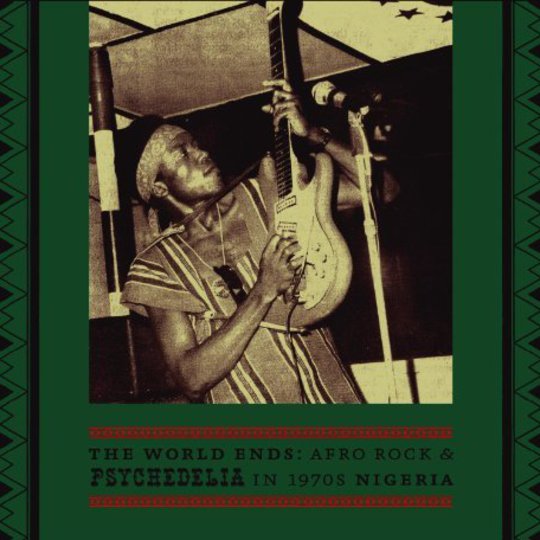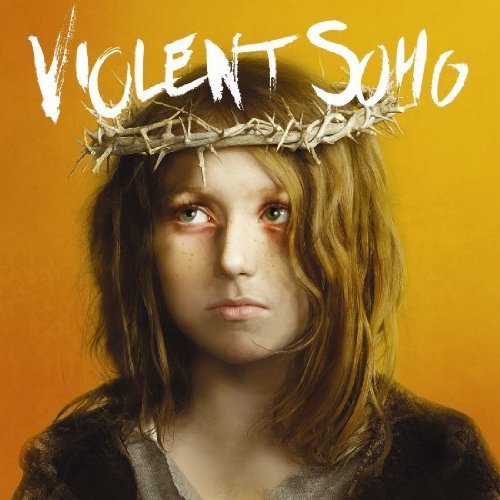The story of The World Ends: Afro Rock & Psychedelia in 1970s Nigeria begins with the fallout of the Biafran War. Nigeria in the late Sixties - like so many other former colony states - found itself in the middle of an internal power struggle. The former British colonial masters had instilled the appetite for modernity, but had drawn the national map, irrespective of preexisting cultural, religious, and tribal boundaries, in such a way as to make regular civil discourse nearly impossible. Inevitably, after the British exit the country was plunged into a violent factional free-for-all, highlighted by the Biafran secessionist drama that tallied hundreds of thousands of casualties, soldiers and civilians alike. The war - like all wars - hit the pause button on the arts. When the final shot had been fired, the old prewar factions of the Yoruba, Hausa-Fulani, and the Igbo found their local cultural scenes razed.
The time was ripe for new artists to make a new Nigeria. Dovetailing nicely with the search for a new Nigeria were the Black Power movements in the West, the Black-is-Beautiful tropes of James Brown, and the Pan-Africanist agenda of the second half of the twentieth century. These separate events created a previously unavailable cultural space in Western culture for African artists to create without simply imitating their former colonial masters. Afro Rock was born in this fiery furnace of modernist aspiration. The improbable orphan of a disastrous war that took hold of the guitar (formerly derided as the 'craft of back alley drunks') to create an enervating fusion style decades before the practice became de rigueur among the fourth-world pop crowd.
James Brown appears to be a chief inspiration among the artists collected into this compilation. Bands such as the Hygrades, the Elcados, the Lawrence Amavi Group, and Wrinkars Experience all take very strong cues from the Master of Funk. On ‘Soundway’, Wrinkars Experience kicks out tight funk inflexions while the lead vocal floats gutbusting onomatopoeias over the beat. In the African version of funk, some of the rapped-knuckles discipline is traded for more spontaneous ensemble work that harks back to tribal tradition. Funk segues into percussion-heavy psych rock with heady guitar journeys by the Thermometers, Colomach, Bongos Ikwue and Cicada. Apart from the hyper-masculinity of the ‘It’s a Man’s World’-world, the ladies get into the mix with ‘Life’s Gone Down Low’ by the Lijadu Sisters. The song expresses a more intimate side of the Nigerian psyche, which finds itself surrounded by carnage but promises that “…it’s not too late for me and you, if we hurry.”
The sense of urgency surrounds the music, the scene, the age in which everything was possible in the moony-eyed expanses of Seventies pop culture. Nuclear bombs, LSD, Black Panthers, famine, People Power: the artists that emerged from out of the Biafran war stirred up all the ingredients into a freaky, post-factionalist potion, and The World Ends is letting all of us Johnny-Come-Latelys take a sip. Hardly a must-listen for the casual music fan. But for music junkies and funk rock aficionados looking to pad their collections, it's a real treat, part of a growing library of early post-colonial pop music that becomes increasingly relevant as rock and roll transforms into a global phenomenon.
-
7Mike Gutierrez's Score






















